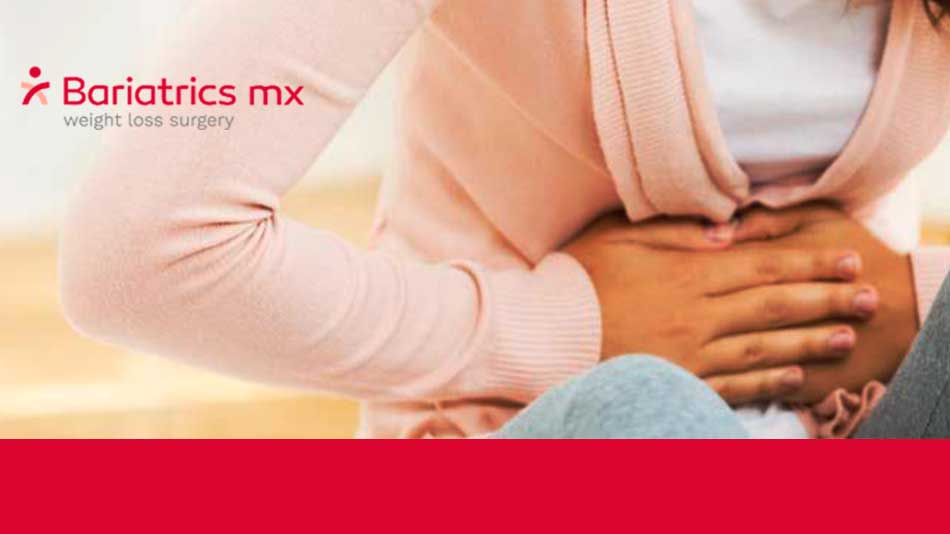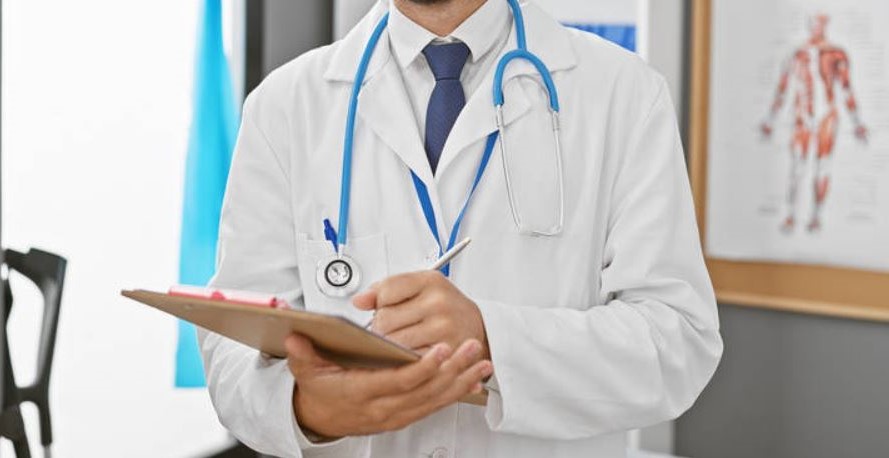Muscle spasms following gastric sleeve surgery are a common aspect of recovery due to the stomach’s inflammation and healing process.
Sleeve gastrectomy, a form of weight-loss surgery, involves reducing the stomach’s size, helping patients feel full with smaller portions. Unlike other procedures, the intestines remain unaffected.
This procedure is both safe and effective, often leading to significant weight reduction within 12-18 months. It also offers improvements in conditions like type 2 diabetes, high blood pressure, and elevated cholesterol.
However, recovery requires time for the body to adjust to the changes in digestion.
Early post-surgical symptoms may include:
- Pain or tenderness at the incision sites
- Tiredness as the body heals
- Stomach spasms or cramping as the stomach heals
- Nausea or vomiting from overeating or eating too fast
- Constipation from pain medications
- Diarrhea as the body adapts to softer foods
- Temporary difficulty tolerating certain foods
It’s important to remember that abdominal discomfort after surgery is common and typically subsides within a few weeks as swelling decreases and the stomach adapts. If pain is persistent or intense, it’s best to consult a physician.
Reasons for post-surgical stomach spasms
Several factors can lead to stomach cramping or spasms after a sleeve gastrectomy:
Changes in digestion: Bariatric surgery alters the way food moves through the digestive system, potentially disrupting normal muscle contractions and leading to temporary spasms.
Natural healing process: After surgery, inflammation and tissue repair are normal and may cause cramping, but these symptoms should improve after about a week.
Stress-related factors: Anxiety or stress can manifest physically, causing abdominal cramping. Practicing relaxation techniques can help ease this.
Dietary changes: The smaller stomach needs time to adjust to digesting food and liquids. Eating too quickly or in large amounts can cause spasms. Following the post-op diet strictly helps minimize this risk.
In most instances, spasms are a normal part of recovery. Staying hydrated, adhering to dietary guidelines, and resting will help minimize discomfort. If symptoms persist, it’s wise to inform your surgical team.
The role of diet in managing stomach spasms
What you consume after surgery has a big impact on stomach spasms. Sticking closely to your doctor’s dietary instructions during the first few months is essential. Foods that are too rich, acidic, or sugary can overwhelm the stomach and cause discomfort. Keeping yourself hydrated can also prevent muscle spasms.
Aim to drink at least 64 ounces of water daily and increase your intake of electrolytes. Caffeine, carbonated drinks, alcohol, and sugary beverages should be avoided, as they can worsen symptoms. A diet focused on bland, protein-rich, low-fat, and low-fiber foods is recommended. Eating smaller meals more frequently and thoroughly chewing food can prevent issues.
As the stomach adapts, you can slowly introduce more variety into your diet. Avoiding known dietary triggers will help manage discomfort. Patience and following medical advice are key.
Physical and medical reasons for stomach spasms
Sometimes, underlying medical conditions may cause stomach spasms after surgery:
- Digestive disorders: Conditions like irritable bowel syndrome (IBS) or other bowel disorders may flare up post-surgery, causing cramping.
- Inflammation: Issues like gastritis, ulcers, or Crohn’s disease can trigger stomach cramping. Proper treatment is needed for these underlying conditions.
- Kidney stones: Passing kidney stones can lead to intense cramping in the abdomen.
- Muscle overuse: Strain from repetitive movements can result in abdominal muscle spasms. Rest is crucial for recovery.
If stomach pain continues despite treatment, consult your doctor to rule out any underlying issues.
Malnutrition-related stomach spasms
Nutritional deficiencies can be a long-term complication after bariatric surgery, contributing to abdominal discomfort. Symptoms like unusual cravings, fatigue, nausea, diarrhea, or vision problems may be signs of malnutrition.
To avoid deficiencies, work closely with your healthcare team. They’ll guide you on supplements, daily protein goals, and choosing nutrient-dense foods. Staying well-hydrated and exercising when possible will also help. Regular check-ups and blood tests will help catch any nutritional problems early, reducing the chances of stomach spasms and other symptoms.
Managing discomfort after bariatric surgery
While stomach pain and muscle spasms can be tough to manage after weight loss surgery, there are several methods to alleviate discomfort:
- Over-the-counter medications
- Anti-cramping medication
- Laxatives
- Walking
- Heating pads
- Warm showers or baths
- Gentle stretching
- Stress-relief techniques
- Drinking plenty of water
- Antacids
If these home remedies don’t help, it’s important to consult your doctor. Intense or prolonged pain may require a more thorough evaluation. Seek medical attention if your symptoms last more than a week or get worse.
Preventing stomach spasms and lifestyle adjustments
You can be proactive in your recovery by following the dietary instructions provided by your doctor, particularly in the first month after surgery. Eat slowly, chew your food well, and avoid putting too much strain on your stomach. Attending all follow-up appointments will help monitor your recovery process.
Bring up any symptoms you’re concerned about with your doctor. Taking prescribed supplements consistently will also help prevent nutritional deficiencies that could lead to cramping. Open communication with your healthcare team is crucial, and joining a support group may provide additional guidance from others with similar experiences.
Lifestyle adjustments such as quitting smoking, gradually increasing physical activity, managing stress, and getting adequate rest will support your recovery.
FAQs: Addressing common concerns about stomach spasms after surgery
Is it normal to have stomach spasms after gastric sleeve?
Yes, it’s pretty normal to experience these spasms after surgery. Your stomach is going through a lot of changes, and spasms are one of the ways it reacts. They should gradually get better as your body heals and adjusts.
What do gastric spasms feel like?
Gastric spasms feel like sharp cramps or a tight, squeezing feeling in your upper stomach. They often happen out of the blue, and things like eating or drinking can set them off. Some people describe it as a sudden knotting sensation that comes and goes.
Why is my stomach cramping after bariatric surgery?
Cramping after your bariatric surgery can happen for several reasons: your stomach is still healing, adjusting to a smaller size, or reacting to dietary changes. If you’re not careful with what or how you eat, these cramps can become more frequent.
What does a twisted gastric sleeve feel like?
A twisted sleeve is pretty rare, but if it happens, it feels much more severe than typical spasms. You might experience intense pain that doesn’t go away, along with nausea, vomiting, and trouble swallowing. This isn’t something to ignore, so if you suspect this, it’s time to see your doctor right away.
Living well after gastric sleeve surgery
Life after weight-loss surgery has its challenges, but with the right support and knowledge, temporary issues like stomach spasms can be managed. Maintain regular contact with your medical team, stick to your dietary plan, and listen to your body throughout the recovery.
Over time, your digestive system will adjust, and the benefits of weight loss and improved health will far outweigh any short-term discomfort. Stay dedicated to self-care, and don’t hesitate to reach out for assistance when needed.








